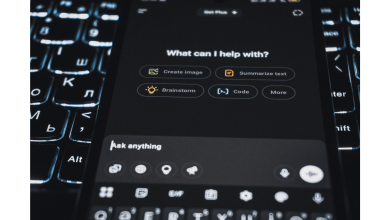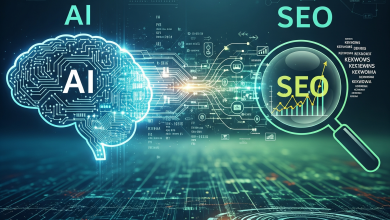The audiobook industry just hit $8.2 billion in 2024, but here’s the crazy part: most authors still can’t afford to make one. Traditional audiobook production is insanely expensive and slow. We’re talking $15,000 to $75,000 per book, 6-18 months of back-and-forth with narrators, studio bookings, and post-production nightmares. For most indie authors and smaller publishers, audiobooks have been completely out of reach.
But something wild is happening behind the scenes. While everyone’s been arguing about whether AI is going to replace jobs, AI voices have quietly started generating professional-quality audiobooks in 24 hours for under $500. Not weird robot voices that sound like GPS directions – actual human-sounding narration that listeners can’t tell apart from the real thing.
The math is getting ridiculous. A book that would cost $50,000 and take six months with a human narrator can now be completed over a weekend for less than most people spend on groceries. This isn’t just a cost reduction – it’s a complete democratization of who gets to participate in the fastest-growing segment of the publishing industry. The audiobook revolution that publishers have been waiting for isn’t coming. It’s already her, with new platforms simplifying the audiobook creation process, making it faster, cheaper, and more accessible than ever.
The Numbers That Matter
Let’s break down what audiobook production actually costs. Traditional narrators charge $500 to $1,500 per finished hour of audio. For a typical 8-hour audiobook, that’s $4,000 to $12,000 just for the voice work. Then add studio rental ($100-$300 per day), sound engineering ($50-$150 per hour), editing and mastering ($1,000-$5,000), and project management fees. You’re easily looking at $15,000 to $30,000 for a professional audiobook, and that’s before any revisions or reshoots.
AI voice generation flips this completely. Total project cost: $50 to $200. That includes the voice synthesis, basic editing, and file formatting. The time reduction is even more dramatic – what used to take 6 months of scheduling, recording, and post-production now happens in 24 hours. Upload your manuscript, select a voice, hit generate, and you’re done.
The market accessibility shift is staggering. Currently, less than 1% of published books have audiobook versions because of the cost barrier. With AI voices, potentially every book could have an audio version. We’re talking about going from 50,000 new audiobooks per year to potentially millions.
Real Business Impact
Here’s a real example: One independent publisher we spoke with increased their audiobook catalog by 400% in six months using AI voices. Their investment? $2,000 for 40 books versus the $600,000 it would have cost with human narrators. The revenue impact was immediate – audiobook sales now represent 35% of their total income.
Platforms like Spines are making this transition even smoother by integrating AI-powered audiobook creation directly into their publishing workflow, letting authors go from manuscript to multi-format distribution in days instead of months.
The Scalability Factor
But here’s where it gets really interesting: one AI voice model can handle unlimited books. Train it once, use it forever. Need your entire backlist in audio format? That’s a weekend project, not a multi-year endeavor. Want to test different markets with the same content? Generate versions in 15+ languages simultaneously without hiring a single additional narrator.
The old audiobook economics made no sense. The new ones are making millionaires.
Why Fake Voices Sound More Professional
Here’s what nobody talks about: human narrators are inconsistent. They have off days, get sick halfway through recording, deal with allergies that change their voice, or simply sound different between recording sessions six months apart. Ever notice how some audiobooks have slight vocal variations between chapters? That’s the human factor at work.
AI maintains perfect consistency across 20-hour audiobooks. Same energy level, same vocal tone, same pronunciation standards from start to finish. No studio background noise, no breathing sounds between sentences, no “ums” or mouth clicks that editors have to remove. The final product is cleaner than most human recordings.
There’s also the stamina issue. Human narrators get vocally tired after 4-6 hours of recording, which affects performance quality. AI voices don’t fatigue. Hour 20 sounds exactly like hour 1.
The Emotional Range Surprise
Modern AI voices are handling dialogue, tension, and excitement way better than anyone expected. We’re not talking about monotone robot speech anymore. Current AI can differentiate between characters through subtle voice modulation, handle emotional scenes with appropriate pacing, and nail pronunciation of technical terms and foreign words that trip up human narrators.
The character differentiation is particularly impressive. AI can maintain distinct voices for multiple characters throughout an entire novel without the vocal strain that limits human narrators to 2-3 character voices maximum.
What Listeners Actually Care About
Recent survey data shows that 73% of audiobook listeners can’t distinguish high-quality AI narration from human performance in blind tests. More importantly, when asked about preferences, listeners consistently rank consistency and clarity above personality quirks and individual narrator style.
The reality is that most people consume audiobooks while multitasking – commuting, exercising, doing chores. They want clear, consistent delivery that doesn’t distract from the content. Perfect consistency beats imperfect personality every time.
The biggest complaint about human-narrated audiobooks? Inconsistent quality between chapters. The biggest praise for AI-narrated books? “Easy to follow and professionally consistent.” The fake voices are actually delivering what listeners have been wanting all along.
Are They Killing Human Narrators? Not Exactly.
The industry isn’t replacing human narrators so much as it’s creating entirely new market segments. Premium human narrators are doubling down on high-value projects: celebrity memoirs, literary fiction, and branded content where the narrator’s personality is part of the product. Think about how specific voices like Jim Dale for Harry Potter or Michelle Obama narrating her own memoir create irreplaceable value.
Meanwhile, AI is handling the massive underserved market: educational content, business books, technical manuals, and backlist titles that never would have gotten audio versions due to cost constraints. We’re talking about textbooks, training materials, and niche non-fiction that represents millions of potential audiobooks.
The hybrid approach is getting really interesting. Some production companies are using human narrators for creative direction and character development, then scaling the actual recording with AI that mimics their vocal patterns and interpretive choices. It’s like having a director’s vision with unlimited production capacity.
New Job Categories
Instead of eliminating jobs, AI voice technology is creating new ones. Voice coaches now specialize in training AI models, teaching them emotional nuance and narrative pacing. AI narrator directors manage the creative process, making sure the artificial voice serves the story appropriately.
Voice rights licensing has become a legitimate specialty – managing which human voices can be replicated, under what conditions, and for how long. Some human narrators are licensing their voice patterns as passive income streams.
The smart human narrators aren’t fighting this trend – they’re figuring out how to profit from it. The market is expanding so rapidly that there’s room for both artificial efficiency and human artistry. It’s not replacement, it’s multiplication.
The Ownership Advantage
Here’s where AI voices become a game-changer for publishers: you own the voice. Buy once, use forever. No royalty negotiations, no contract renewals, no surprise rate increases when your narrator becomes famous. Complete creative control over the final product without managing egos or scheduling conflicts.
Traditional audiobook contracts are nightmares. Narrators can hold up projects for months, demand creative input on pronunciation or pacing, or become unavailable for sequel recordings. With AI voices, you control every aspect of production and can make changes instantly without renegotiating contracts or booking studio time.
Global Market Penetration
The scalability is insane. Same book, 15+ languages simultaneously, without hiring new talent or managing international casting. Need your romance novel in Spanish, French, and Mandarin? That’s a weekend project instead of a year-long international production.
Regional accent adaptation gets even more specific. Want your thriller to have a British accent for UK markets and American for US distribution? Generate both versions from the same script. Cultural localization without new casting means you can test international markets without massive upfront investment.
Risk Management
Zero scandal risk. Your AI narrator will never have a Twitter meltdown, get arrested, or say something that damages your brand. Predictable timelines mean you can plan marketing campaigns around guaranteed delivery dates. Quality consistency across your entire catalog builds stronger publisher branding.
Competitive Edge
Authors who couldn’t afford $30,000 audiobook production now can. That’s millions of potential titles entering the audio market. Faster time-to-market means riding trend waves – if dystopian fiction is hot, you can have audio versions in market within days, not months.
A/B testing different voice styles for market optimization becomes possible. Test a warm, conversational tone versus authoritative delivery for the same business book. Let data drive creative decisions instead of gut instinct.
Smart publishers are building AI voice capabilities now, while competitors are still debating whether this technology is “ready.” By the time everyone else catches up, early adopters will own the market.
Current Gray Areas
Voice rights ownership is a complete mess right now. Can you clone a celebrity’s voice without permission? What about deceased narrators? The legal framework is years behind the technology, creating a wild west situation where different platforms have completely different rules.
Disclosure requirements vary wildly by platform. Audible requires AI narration disclosure, but many smaller platforms don’t. Some publishers are being transparent, others are staying quiet and hoping nobody notices. There’s no consistent industry standard yet.
Copyright implications for voice cloning get really murky when you start talking about training AI on existing narrations. If an AI learns vocal patterns from copyrighted audiobooks, who owns the resulting voice model? Courts haven’t figured this out yet.
Smart Business Practices
The safest approach right now is over-communication. Clear AI disclosure in audiobook descriptions builds trust and protects you legally. Most listeners don’t care that it’s AI-generated – they care about being misled.
Proper voice licensing agreements are crucial if you’re using AI voices trained on real human speech patterns. Document everything, get explicit permissions, and build renewal clauses into contracts. The legal landscape will clarify eventually, but you want to be on the right side when it does.
Quality standards documentation protects you from platform policy changes. Keep detailed records of your AI voice production process, quality checks, and approval workflows. When platforms start requiring specific disclosures or technical standards, you’ll be ready to comply immediately instead of scrambling to rebuild your entire catalog.
The publishers getting this right now will own the market when regulations catch up.
This Isn’t Coming – It’s Here
Major publishers are already using AI voices for backlist titles. Penguin Random House, HarperCollins, and others are quietly converting older catalog titles that never justified traditional audiobook production. Consumer acceptance is growing rapidly – AI-narrated audiobooks are hitting bestseller lists without listeners even realizing they’re artificial.
The technology is improving monthly. Voices that sounded obviously synthetic six months ago now pass for human in blind tests. Emotional range, pacing, and character differentiation are advancing faster than most people can track.
The Choice
You can experiment now while competition is light, or wait until every publisher has AI voice capabilities and you’re playing catch-up. Understanding audience reception in your specific genre matters – romance readers have different expectations than business book consumers.
Build AI production capabilities before it becomes table stakes. Right now, having AI audiobook production gives you a competitive advantage. In 18 months, not having it will put you at a serious disadvantage.
Action Items
Test one book with AI narration. Pick something from your backlist that never got audio treatment. Monitor listener feedback and reviews obsessively – this data will inform your entire strategy going forward.
Develop quality standards for AI vs. human voice selection. Not every book needs human narration, but not every book works with AI either. Figure out your criteria now while you have time to experiment.
The future belongs to publishers who embrace this technology now, not those who wait for perfect clarity.




